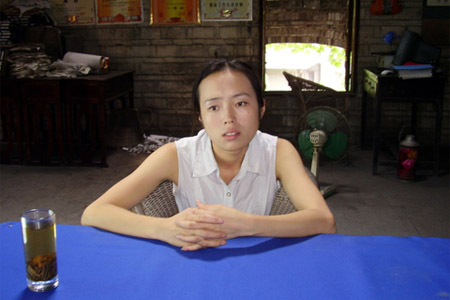[iframe width=”560″ height=”315″ src=”http://www.youtube.com/embed/UmDyRJ_RGIo” frameborder=”0″ allowfullscreen]
Chinese director Ying Liang cannot return to his country. On April 28, Ying debuted his film When Night Falls at the Jeonju International Film Festival in South Korea. The film is based on the true story of Yang Jia, who killed six policemen after allegedly suffering police brutality, and whose trial stirred controversy and protest over the fairness and due process of the legal system in China. As reported by David Hudson in the Keyframe Daily, after the film was shown in Jeonju, Ying’s family, in Shanghai, and his wife’s family, in Sichuan, were visited by Chinese authorities, who also tried “to buy the rights to the film.” Ying also learned that he would be arrested if he were to return to mainland China. He currently lives and works in Hong Kong, trying to manage the well-being of his relatives back home (asking them to document every interaction with local authorities), as well the fate of his new film.
When Night Falls has brought unprecedented scrutiny and pressure upon Ying Liang, but it’s not the first time his films have offered a sharply critical view of China’s societal dysfunction. Ying’s debut Taking Father Home examined the breakdown of families in the era of migrant labor. Good Cats views labor exploitation from the opposite end, following a young man’s entry into the inner circle of business and corruption in his hometown. Ying’s best feature, The Other Half, is perhaps the most thematically aligned with When Night Falls, as it also deals explicitly with the failure of China’s legal system to address the problems of its people. New Yorker film critic Richard Brody selected The Other Half as one of his ten best films of the 2000s, heralding Ying’s ability to bring a “laser-like analytical eye to the crossroads of private life and oppressive authority.” This video essay further explores the film and Ying’s ability to bring the “other half” of China into a stark spotlight.
TRANSCRIPT
“Women hold up half the sky,” goes the Chinese proverb. That’s one way to interpret the title of Ying Liang’s The Other Half, which is centered on the story of Xiaofen, a hapless young woman trying to hold her life together. Her personal life is a kind of trap, sandwiched between a no-good boyfriend caught in a downward spiral of drinking and gambling, and a proposed marriage arranged by her mother with a factory owner—a match that feels more like a business deal.
Xiaofen tries to lose herself in her work as a secretary in a law office, where prospective clients discuss their cases. This is where the title’s other meaning emerges. It’s in this office that we witness the other half of society, the one normally kept out of view, as messages of economic progress and social harmony are routinely broadcast in public. “The other half” is one of failing marriages and betrayed relationships, exploited workers and delinquent juveniles. Tradition buckles under new social and sexual dynamics: self-interest, distrust, and discontent.
‘The other half’ is one of failing marriages and betrayed relationships, exploited workers and delinquent juveniles. Tradition buckles under new social and sexual dynamics: self-interest, distrust, and discontent.
Director Ying Liang films these interviews with a deliberate crudeness that blends documentary realism with satirical caricature. It quickly becomes apparent how little these people understand how the legal system works, and how inadequate the law is in dealing with their problems. The law office is a stand-in for social institutions at large, barely maintaining its façade of order and justice against a tide of sweeping social upheaval.
That threat of upheaval literally explodes in the final act of the film, as an explosion in a chemical plant—one that announced new safety policies earlier in the film—threatens to wipe out the entire city. Director Ying Liang filmed The Other Half on a miniscule budget, yet he is able to convey the feeling of a metropolis on the verge of annihilation, with a directness that’s more chilling than a Hollywood blockbuster spectacle. In The Other Half, society is a bomb, whose ticking we ignore at our own peril.
Kevin B. Lee is Editor in Chief of IndieWire’s PressPlay Video Blog, Video Essayist for Fandor Keyframe, and contributor to Roger Ebert.com. Follow him on Twitter.




